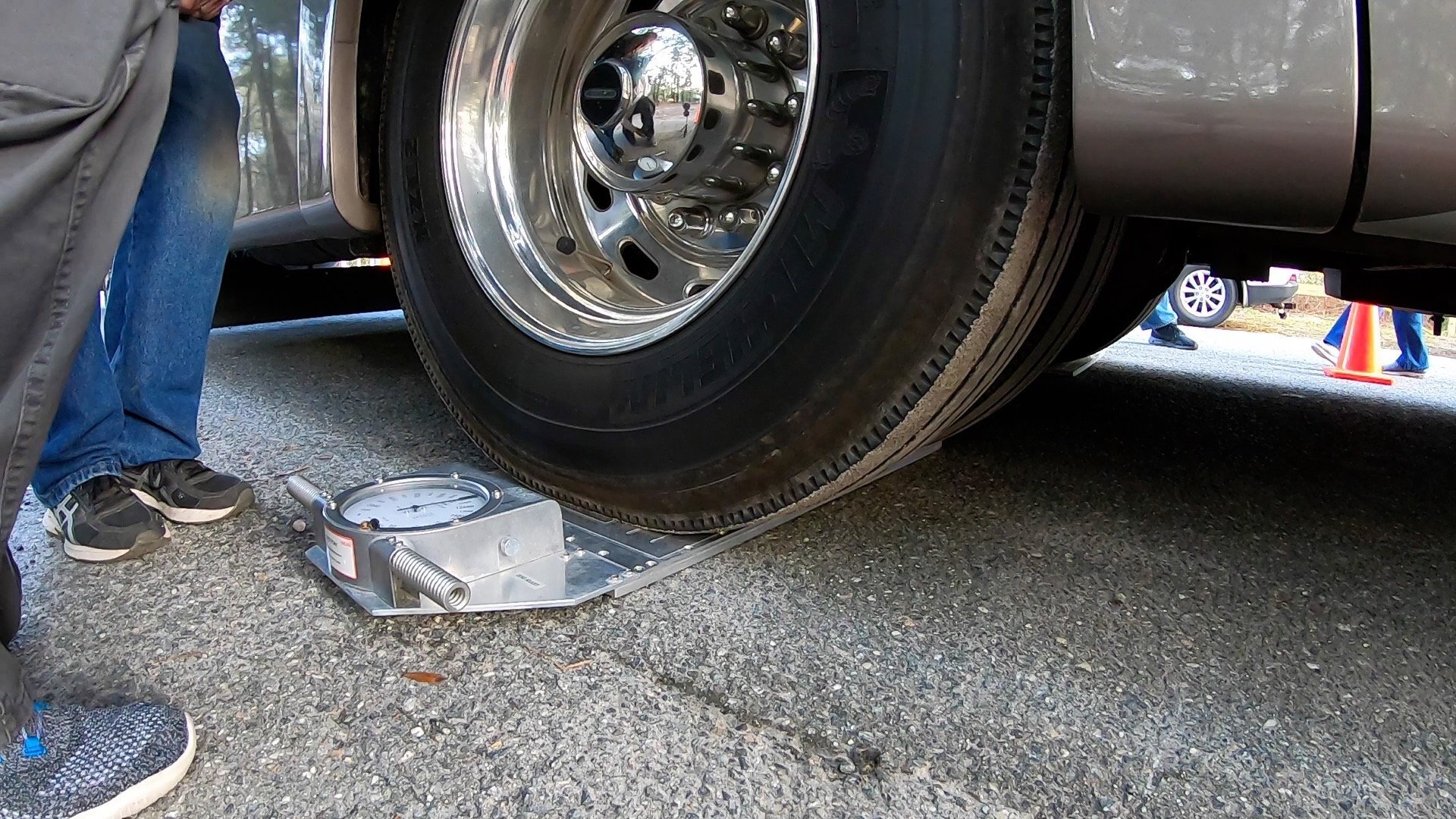Buying the Best RV Battery: Choose the Best for You
Disclosure: The links below may be affiliate links that are at no additional cost to you. When you use our links, we may earn some extra beer money, but it won’t be enough for Phil’s ice cream habit or a batch of Stacy’s famous margaritas (recipe here).
Are you looking for the best RV battery for your RV? Not every battery will work in every RV for every application. So let's break down each battery type and find the best Rv battery for your RV and your wallet.
RV Electrical
Before we get to the batteries, you might want to check out our previous blog RV Electrical: What You Need to Know. It will take you through RV power flow and clarify some questions you may have.
RV Power Diagram by You, Me & the RV
We will walk you through RV power in this easy to follow video.
Best RV Battery Types
There are three main types of RV batteries. We are going to go through the pros and cons of each type. But please remember we will be generalizing here. Check with the manufacturer for the specifics of the battery you are researching.
Lead Acid Batteries
Lead-acid batteries have the least expensive upfront cost at about 55 cents an amp hour. We started our full time RV journey with this type of battery, and they did a good job.
Maximum depth of discharge is 50%
Discharge more than 50% will decrease the number of life cycles
Average number of life cycles is 500 in perfect conditions
Fully charge the battery for maximum life cycles
Average cost per amp-hour $0.55
Cheapest upfront cost
Requires Maintenance: Fluid in the cells requires routine monitoring and replacement
These batteries need to be well ventilated due to off-gassing
Batteries cannot be indoors
AGM - Absorbed Glass Mat
These batteries cost a bit more upfront but do not require maintenance.
Maximum depth of discharge is 50%
Discharge more than 50% will decrease the number of life cycles
Average number of life cycles is 1000 in perfect conditions
Average cost per amp-hour is $0.59
The acid in the battery is completely sealed and will not spill
Maintenance is not required
Discharge is slower than lead-acid batteries
Charges faster than lead-acid because it can handle a higher current during the bulk charging phase
Must be stored fully charged
Heaviest Battery type, so know your weight
Lithium
Lithium batteries are known for their high upfront cost. But the reality is they only average about 50 cents per amp hour, making them cheaper than the other types of batteries. We consider lithium a long-term investment, and we love the benefits our Battle Born Batteries have provided us. It was one of our best upgrades. But they may not be right for everyone.
The maximum depth of discharge is 90-100% depending on the brand. With our Battle Born lithium, we can discharge completely.
The average number of life cycles is 3000-5000 depending on the manufacturer.
The average cost per amp hour is $0.50
Lithium charges faster than AGM and lead-acid batteries
This battery is maintenance free.
Life cycles are not lost if they are not charged to 100%.
This type of battery provides the most consistent power.
Does not produce outgassing
Can safely be installed inside the RV
Highest upfront cost
Lithium can not be charged if the battery temperature is below 32 degrees.
Many have warming blankets keeping them above 32 degrees.
Inside installation is another way to keep the batteries above 32 degrees.
Which RV Battery is Best for You
Now that we have listed the pros and cons of each type of battery let's talk about which battery might work best in each of the following specific situations.
Full Hookups
Does every RVer need the biggest and the best battery? No way! If you prefer to stay in full hookup campgrounds, then lead-acid and AGM batteries would work great for you. The only time the batteries will be used is while traveling from one campground to another.
If you choose lead-acid batteries, they will be the least expensive and the lightest. But these batteries will require routine maintenance.
AGM batteries cost a little more than lead-acid, but they do not require maintenance. These batteries also weigh more than lead-acid, so if you are over your weight allowance, this should be considered before purchase.
Weight Allowance
Worried about your RV being overweight? Have you had it weighed lately? Check out 4 Corner Weigh: To Stay Safe in Your RV for more information on the importance of RV weights. When it comes to battery upgrades, weight might be a consideration.
Lithium batteries are the lightest battery available. We saved 30 pounds per battery when we upgraded from lead-acid to our Battle Born lithium. That is 120 pounds that I can use for something a bit more fun!
AGM batteries are the heaviest battery. When upgrading lead-acid batteries to AGM, know the weight of your RV.
Photo by Rune Haugseng on Unsplash
When choosing batteries for cold weather camping lithium is the best followed by AGM based on battery capacity. Power Tech Systems
Cold Weather
Are you a fan of cold weather camping? Prefer the ski slope over the sandcastles? Although that does not describe this girl, there are many of you out there. There are a few things to consider when upgrading batteries if you are a fan of freezing temperatures!
Cold temperatures are not necessarily bad for your batteries. Batteries will hold a charge longer in colder temperatures. That's why people put their household batteries in the fridge. This happens because cold weather slows down the chemical reactions inside the battery. The negative side of cold weather camping is lowered battery storage capacity.
Most batteries are rated and tested at 77°F (25°C), which is their optimal temperature. So at 77 degrees Fahrenheit, you will get the most from your batteries. Batteries will lose up to 10% of their capacity for every 15-20 degrees below this optimal temperature.
Photo by Tyler Lillico on Unsplash
Charging Temperatures
If you are a winter camping lover, it is important to know how low the temperature can drop before it is unsafe to charge your batteries.
Lead Acid
Lead-acid batteries can charge at temperatures as low as -4 °F or -20 °C (check your battery with your manufacturer). But these batteries also require the most attention in the winter. This battery has the highest risk of freezing at lower temperatures. Off-gassing production requires this type of battery to be well ventilated, making it more difficult to keep then warm.
AGM
AGM batteries also can charge at temperatures as low as -4 °F or -20 °C but produce less off-gassing than lead-acid batteries. This type of battery will be easier to insulate from the cold.
Battle Born Lithium: Save $50 per battery with code: someday
Lithium
Lithium batteries cannot be charged at temperatures below 32 °F or 0 °C. But the advantage to these batteries is they do not produce off-gassing and can even be installed inside the RV, which will allow for temperature regulation. Some lithium manufacturers also include warming technology inside the battery or wrap them in a warming blanket made specifically for cold climates.
We choose lithium batteries based on the power we wanted to use while boondocking without turning on the generator. Our Battle Born lithium batteries allow us to use appliances with large energy draws such as the instant pot, toaster, coffee pot, and flat iron without a second thought! Lead-acid and AGM batteries are not able to handle power draw as large as lithium.
Your Best RV Battery
So for us, lithium was the clear choice for our upgrade. Which of these batteries will work best for you? Do you know what type of battery you are using in your RV right now? Are you thinking of upgrading?
Meet Stacy! Stacy and her husband, Phil, are a wanderlust couple who have been roaming the great USA for an epic 7 years! They ditched the daily grind to embark on thrilling adventures and inspire fellow dreamers to chase their travel dreams. Curious about how they do it? Check out their awesome YouTube channel, Today is Someday, where they're spilling all the secrets to living a life on the move. Get ready to pack your bags and join them on this incredible journey.
Today is Someday, ALL RIGHTS RESERVED, 2020






















